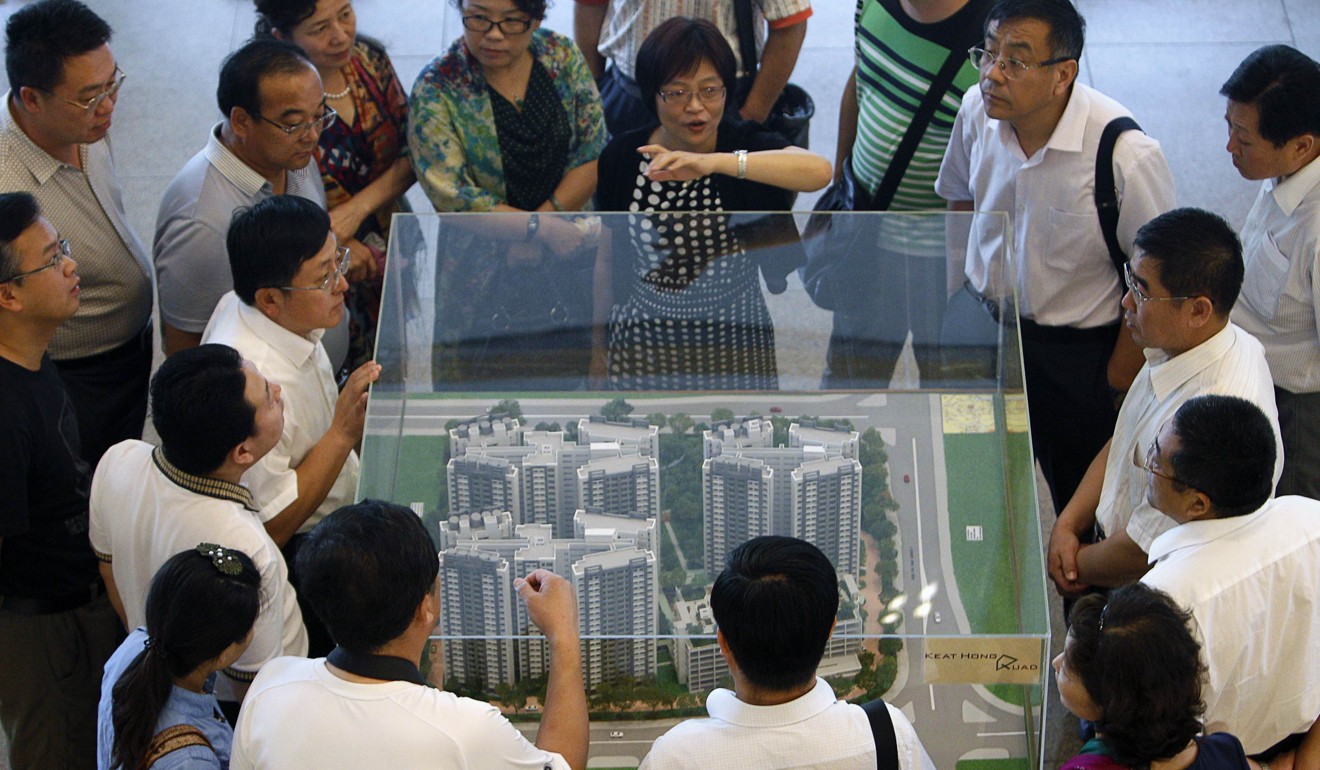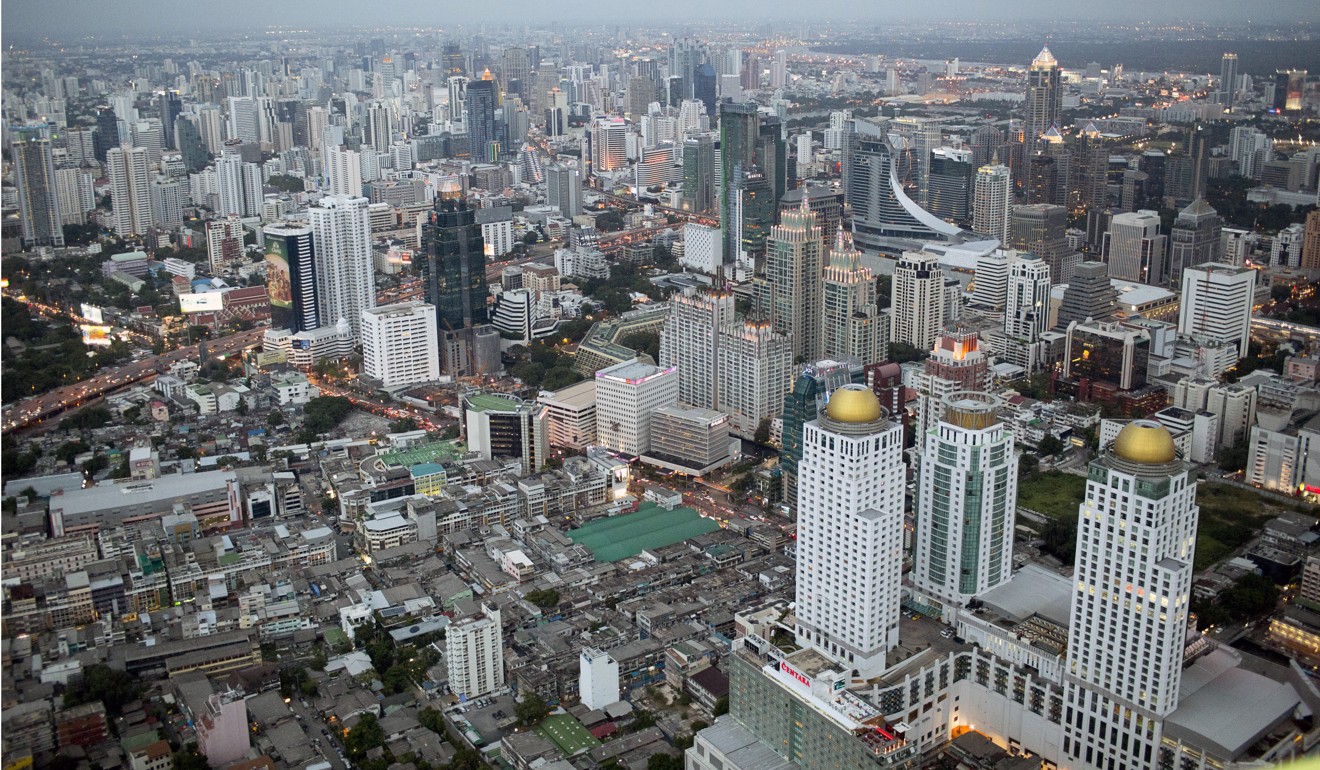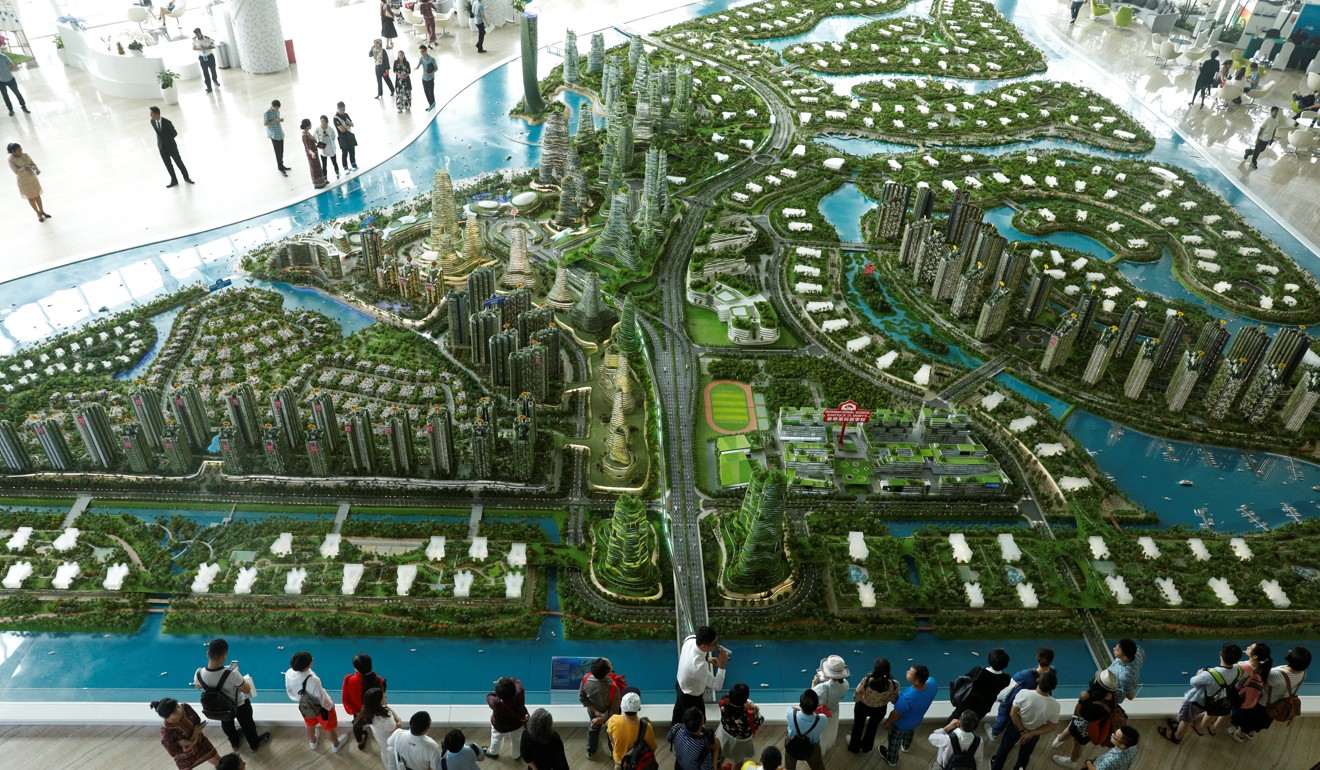
Meet the man looking to Thailand and Malaysia to make overseas home ownership a reality for Chinese
The ‘Belt and Road Initiative’ and an overheated housing market at home have increased the allure of real estate deals in Southeast Asia
Yao Weiliang has made 32 trips from his home in southern China to Thailand in the past two years.
Along with his business partner Kong Shaoshi, the 42-year-old Guangzhou entrepreneur sees the Southeast Asian country as a place where China’s growing middle class can realise their ambition to own an overseas property.
“Most middle-class Chinese can’t afford to buy a 5 million yuan (US$768,000) home in Australia or the US,” Yao Weiliang, the co-owner of BestHomeRE, a firm that caters to Pearl River Delta buyers of properties in Southeast Asia, told the South China Morning Post.

“But we found the booming Southern Asian countries with the cities’ high property returns are more profitable and practical to purchase for middle-class mainlanders, who are actually eager to follow in the footsteps of the tycoons and celebrities, and own property overseas in the emerging markets.”
China’s housing ‘melt up’ continues, as new home prices rocket most in 19 months
Yao said that investing in “affordable” and “flexible” condo projects in the region was a practical way to profit from the belt and road’s potential to boost the transport infrastructure and local tourism and property markets in cities such as Bangkok, the Thai resort centre of Pattaya and Kuala Lumpur.
The opportunity to help people realise that dream prompted Yao and Kong to launch their business in late 2016, Yao said.

In the past, companies helping wealthy Chinese buy real estate overseas focused mainly on expensive properties in North America, Europe and Australia.
But Beijing’s tightening of capital controls last year has made it harder for individuals to exchange the millions of yuan into US dollars or other currencies needed to buy property in developed countries.
Rental properties are the new gold in China for overseas funds
The belt and road plan, Chinese President Xi Jinping’s idea to plough billions of dollars of investment into global infrastructure projects across 68 countries, has gained momentum since its conception in 2013, quickening the pace of real estate investment in certain areas of Southeast Asia.
Individuals worried about the danger that China’s overheated housing market poses to the world’s second-largest economy have come to Yao’s company for help buying property in Thailand or Malaysia.

“We receive dozens of calls daily from individual investors across the delta,” Yao said. “We think we two could help dozens of buyers this year.”
For instance, it would not be hard to find a family from Shenzhen or Guangzhou that would be interested in buying a 30 square metre condo in Pattaya’s downtown area for between 500,000 and 800,000 yuan, Yao said.
A comparable flat in Shenzhen could cost at least 2 million yuan, he said.
CBRE Thailand bullish on the kingdom’s office market
With annual forex purchases capped at US$50,000 per person in China, a typical middle-class couple could easily exchange enough yuan to own a small unit in Pattaya, the most popular tourist attraction for Chinese tourists, Yao said.
Condo units ranging from 30 to 50 square metres can be bought for 1 million to 2 million yuan in Bangkok and Kuala Lumpur.
“The rents in the cities are much better than any of China’s cities, at least triple or more,” Yao said.
The high demand for condos in Bangkok, Pattaya and Kuala Lumpur was partly a result of the countries’ popularity with Chinese, Yao said.
Why are middle class Chinese moving their money abroad?
“The two countries are among those with the fastest economic growth in Southeast Asia and are loved by Chinese people,” he said.
By contrast, Singapore was too expensive as an investment destination and Vietnam was generally unfriendly to the Chinese, Yao said.
‘Don’t give our land away’: the clash of interests in Vietnam’s anti-China protests
He said his clients were most interested in projects close to convenient public transport in Thailand, where developers can allocate as much as 49 per cent of a development to foreign buyers.

About 200 units at On Nut, a Bangkok residential area popular with expats and families, sold out early this year as Chinese buyers thronged the development’s centre, according to Yao.
Chinese enthusiasm for Thailand is reflected in the Thai tourist industry – the Southeast Asian nation had a record 1.2 million visitors from China in February, a month that included the Lunar New Year holiday, according to Bloomberg.
Chinese tourism boom blamed as Thai beach from Leonardo DiCaprio film closes
The Thai tourism ministry has said it expected 38 million tourists overall this year, including more than 10 million from China. Local travel agency Mangga Travel & Tours said it expected 20 to 30 per cent more Chinese tourists this year.


